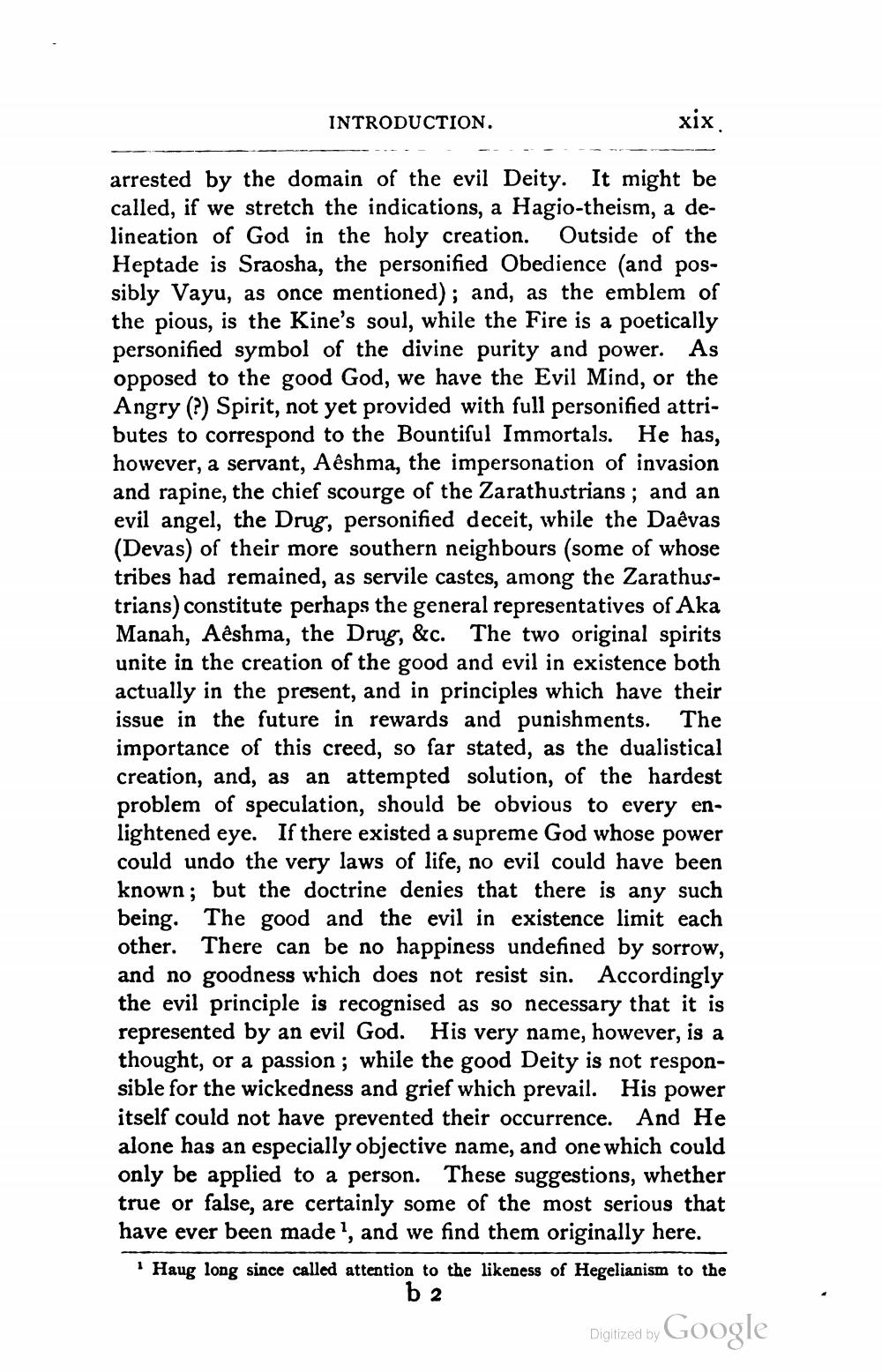________________
INTRODUCTION.
xix.
arrested by the domain of the evil Deity. It might be called, if we stretch the indications, a Hagio-theism, a delineation of God in the holy creation. Outside of the Heptade is Sraosha, the personified Obedience (and possibly Vayu, as once mentioned); and, as the emblem of the pious, is the Kine's soul, while the Fire is a poetically personified symbol of the divine purity and power. As opposed to the good God, we have the Evil Mind, or the Angry (?) Spirit, not yet provided with full personified attributes to correspond to the Bountiful Immortals. He has, however, a servant, Aêshma, the impersonation of invasion and rapine, the chief scourge of the Zarathustrians; and an evil angel, the Drug, personified deceit, while the Daevas (Devas) of their more southern neighbours (some of whose tribes had remained, as servile castes, among the Zarathustrians) constitute perhaps the general representatives of Aka Manah, Aeshma, the Drug, &c. The two original spirits unite in the creation of the good and evil in existence both actually in the present, and in principles which have their issue in the future in rewards and punishments. The importance of this creed, so far stated, as the dualistical creation, and, as an attempted solution, of the hardest problem of speculation, should be obvious to every enlightened eye. If there existed a supreme God whose power could undo the very laws of life, no evil could have been known; but the doctrine denies that there is any such being. The good and the evil in existence limit each other. There can be no happiness undefined by sorrow, and no goodness which does not resist sin. Accordingly the evil principle is recognised as so necessary that it is represented by an evil God. His very name, however, is a thought, or a passion ; while the good Deity is not responsible for the wickedness and grief which prevail. His power itself could not have prevented their occurrence. And He alone has an especially objective name, and one which could only be applied to a person. These suggestions, whether true or false, are certainly some of the most serious that have ever been made !, and we find them originally here.
Haug long since called attention to the likeness of Hegelianism to the
b
2
Dialized by Google
Digitized by




